Aircraft Info
"The Convair Kingfish reconnaissance aircraft design was the ultimate result of a series of proposals designed at Convair as a replacement for the Lockheed U-2. Kingfish competed with the Lockheed A-12 for the Project Oxcart mission, and lost to that design in 1959."
About Kingfish
After cancellation of the B-58B in mid-1959, Convair turned to a completely new design, similar to their earlier entry in name only. The new "Kingfish" design had much in common with the Convair F-106 Delta Dart, using a classic delta wing layout like most of Convair's products. It differed in having two of the J58 engines buried in the rear fuselage, and twin vertical surfaces at the rear. The intakes and exhausts were arranged to reduce radar cross section, and the entire aircraft had the same sort of angular appearance as the later Lockheed F-117. The leading edges of the wings and intakes continued to use pyroceram, while other portions used a variety of materials selected for low radar reflection, including fiberglass. The new engines reduced the cruise speed to Mach 3.2, compared to Mach 4.2 for the FISH, but range was increased to about 3,400 nm (6,300 km).
In July 1959, Lockheed and Convair presented preliminary designs and RCS estimates to the review panel. Lockheed's was designated the A-12, and was a variation of their A-11 design. President Eisenhower was briefed on 20 July and he approved moving ahead with a final decision. On 20 August, the companies presented their final designs for Kingfish and the A-12. Lockheed's design was estimated to have longer range, higher altitude and lower cost.[5] Johnson expressed skepticism of Convair's claimed RCS, and complained that they had given up performance to achieve it: "Convair have promised reduced radar cross section on an airplane the size of A-12. They are doing this, in my view, with total disregard for aerodynamics, inlet and afterburner performance."
On 28 August 1959, Johnson was notified that the A-12 had been selected. The decision was based not only on aircraft performance but also on contractor performance. During the U-2 project, Lockheed had proven its ability to design advanced aircraft in secret, on-time, and under-budget. In contrast, Convair had massive cost overruns with the B-58 and no secure R&D facility similar to the Skunk Works. Lockheed promised to lower the RCS in a modified version of the A-11 known as the A-12, and that sealed the deal. The A-12 entered service with the CIA in the 1960s, and was slightly modified to become the Air Force's SR-71.
Activation Group
AG1 : Activate Recon Camera
AG2 : Drag Chute
AG3 : Mach Switch (for Mach 3 Flying)
AG4 : Landing Gear Lights
Photos




Snowstone Photographed with Kingfish

Specifications
Spotlights
- FlyingThings 1.3 years ago
- Pan 1.3 years ago
- Bryan5 1.3 years ago
- VeroViper 1.3 years ago
General Characteristics
- Successors 1 airplane(s) +21 bonus
- Created On Windows
- Wingspan 63.0ft (19.2m)
- Length 75.7ft (23.1m)
- Height 16.9ft (5.1m)
- Empty Weight N/A
- Loaded Weight 15,602lbs (7,077kg)
Performance
- Power/Weight Ratio 26.142
- Wing Loading 17.7lbs/ft2 (86.4kg/m2)
- Wing Area 882.0ft2 (81.9m2)
- Drag Points 133
Parts
- Number of Parts 317
- Control Surfaces 0
- Performance Cost 1,353

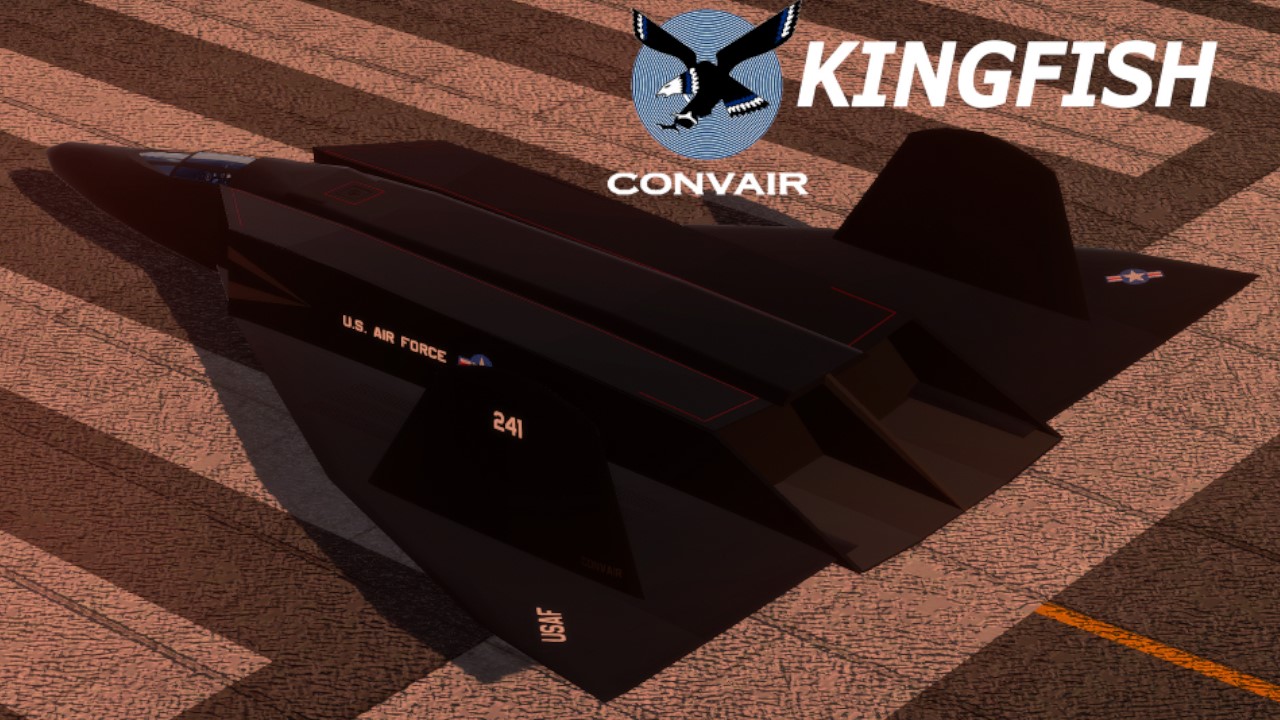
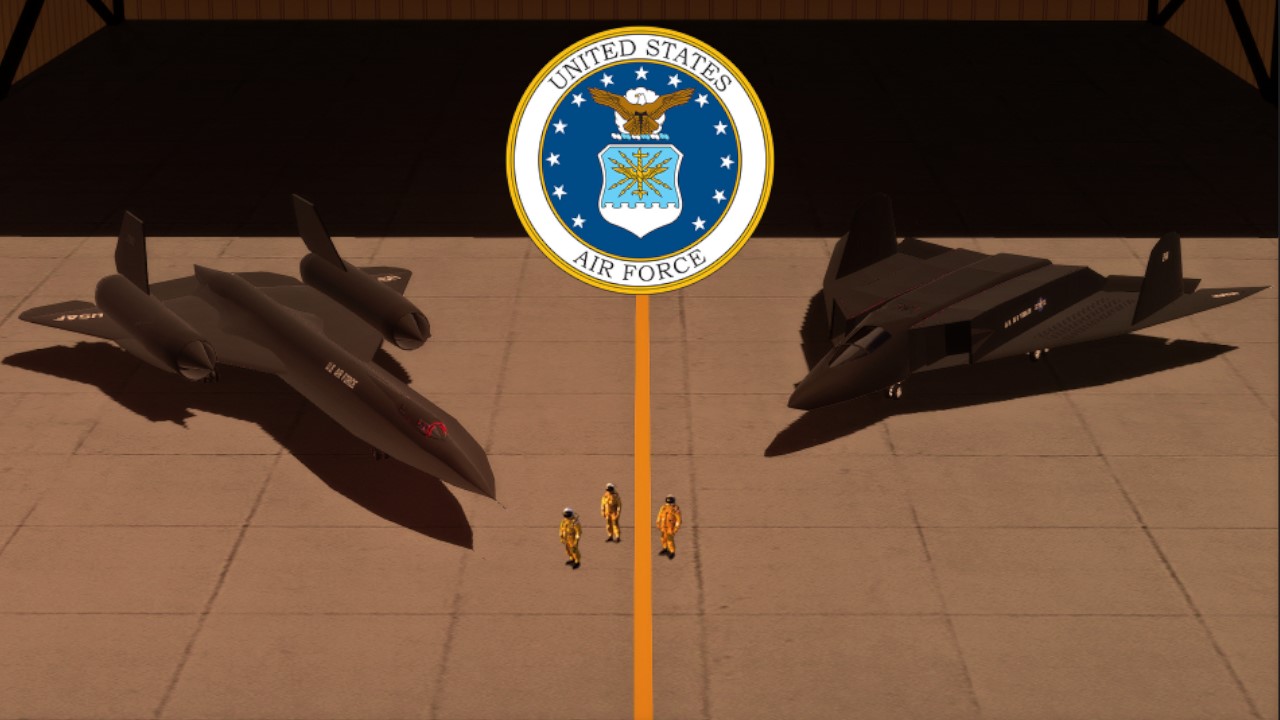
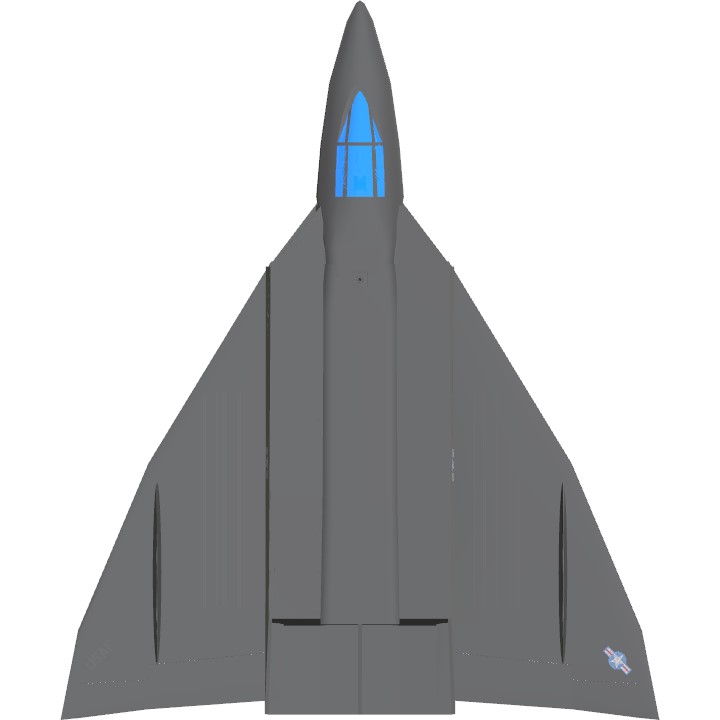
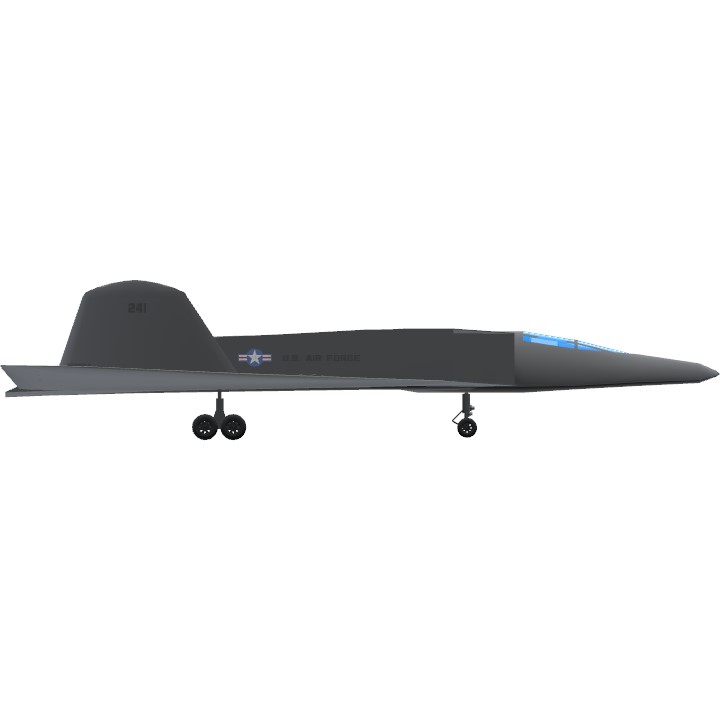
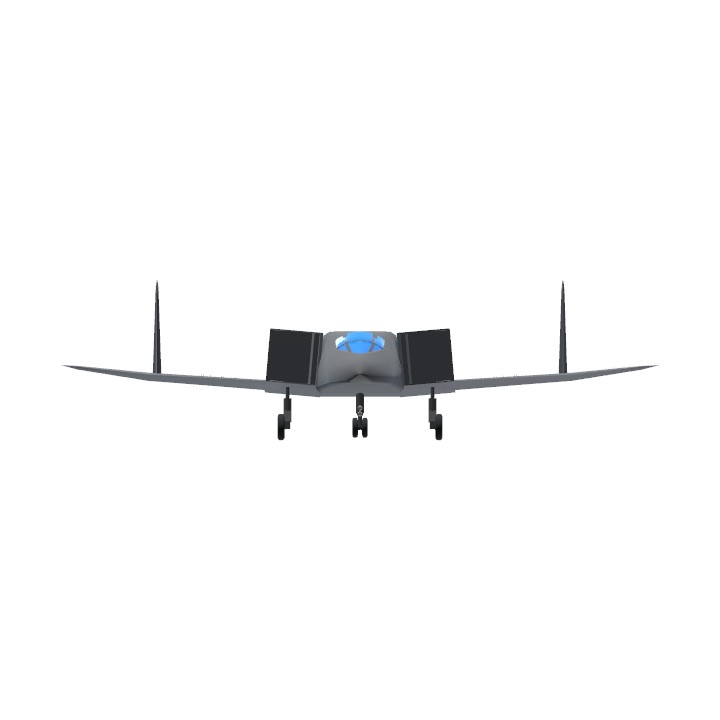
Tag Requested :
@DatMaluchGuy19
@PUMPKINSIDD guess I forgot to take my meds, forgive me lord
@JuanNotAnAlt seriously stfu
@PUMPKINSIDD cope hard
@phrongus "I Can show you the world~"
@JuanNotAnAlt stfu its annoying
Skill issues
Very cool
wobbly for sure
This brings a whole new meaning to "I am speed"
@Atrocitum lol thanks
BUILD RATING: AMAZING
UPVOTING CANNON STATUS: FIRED
SPOTLIGHTING CANNON STATUS: UNAVAILABLE